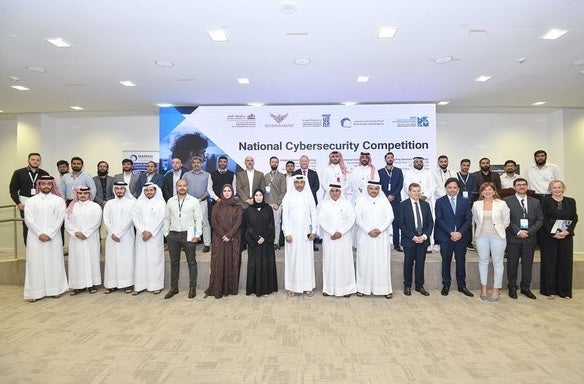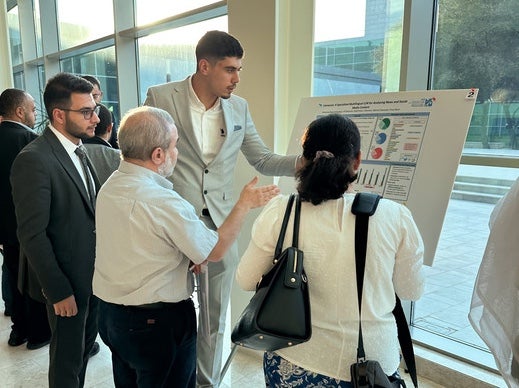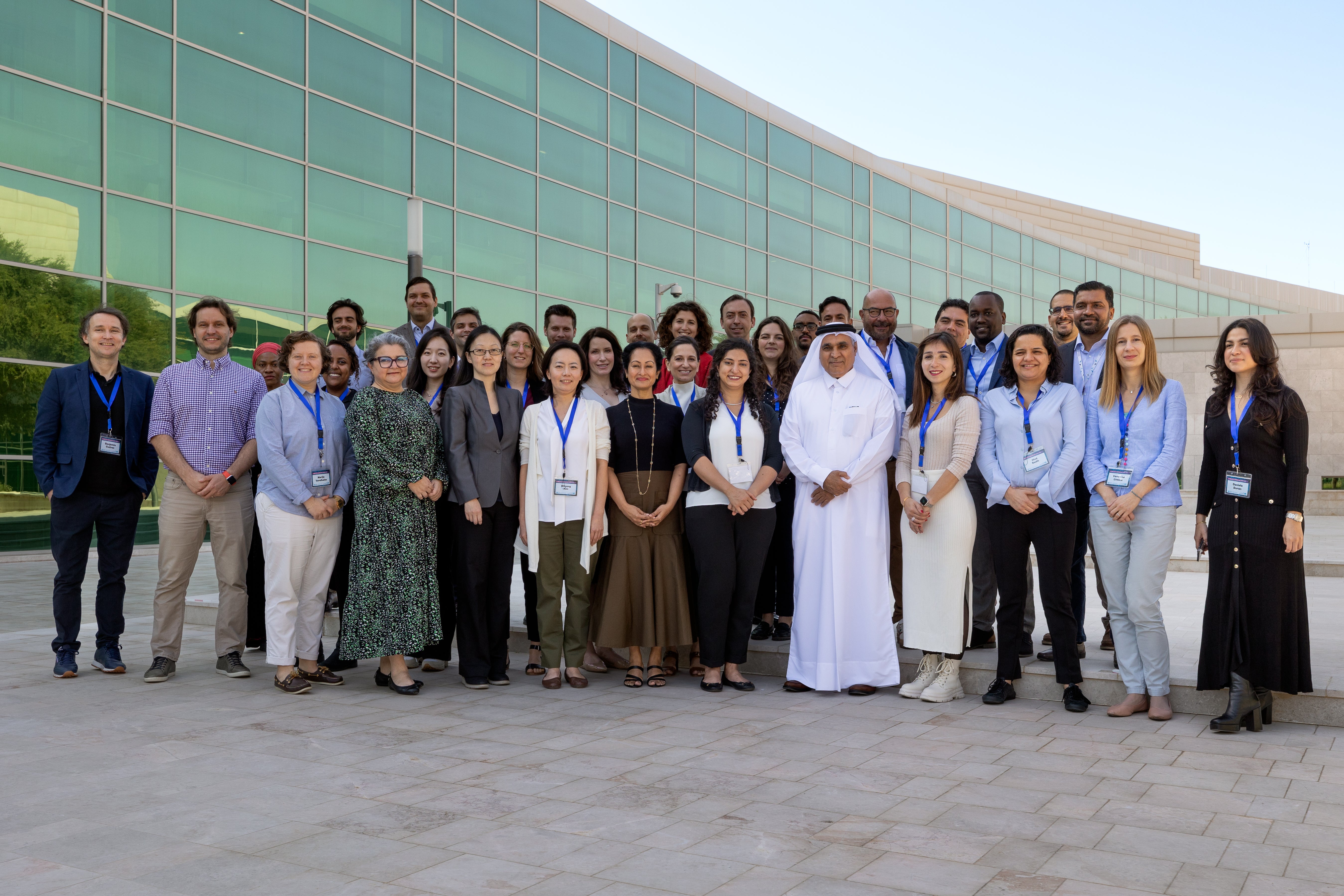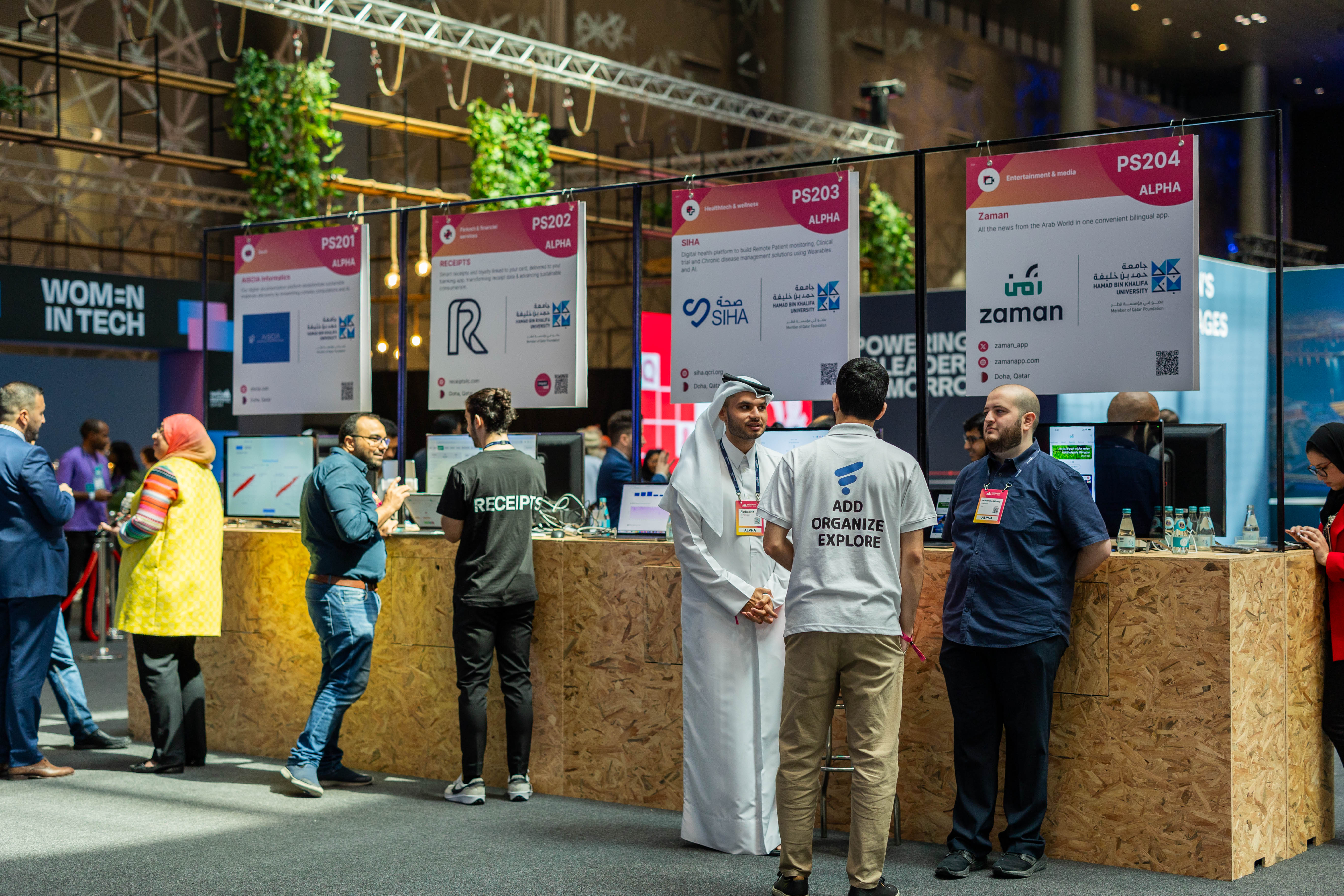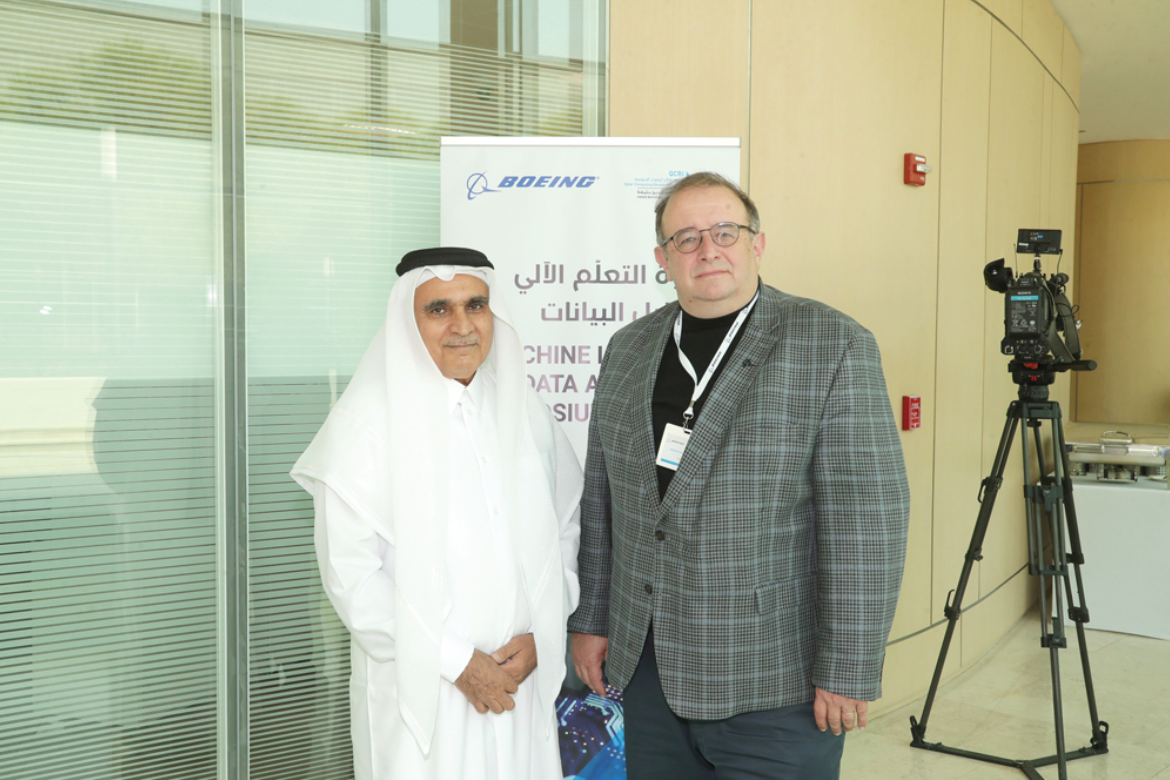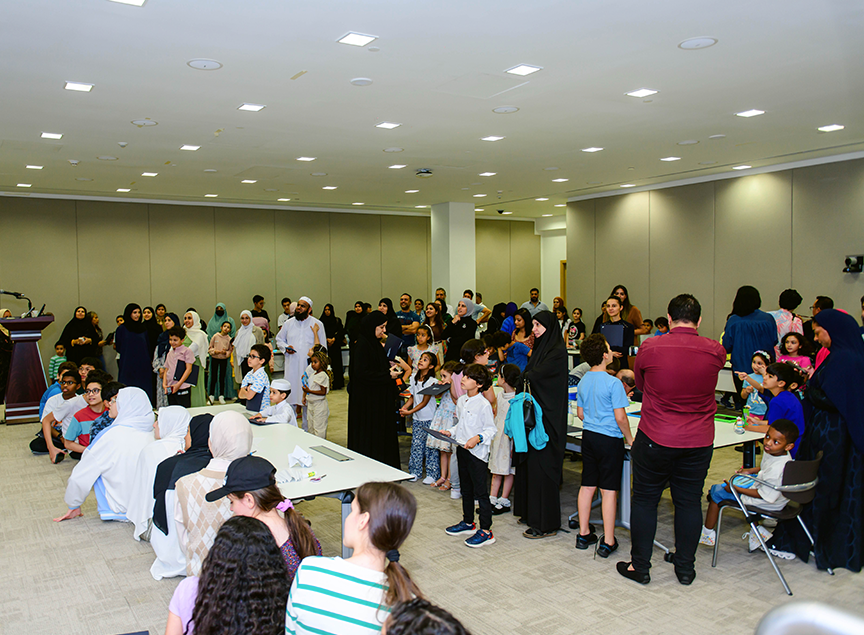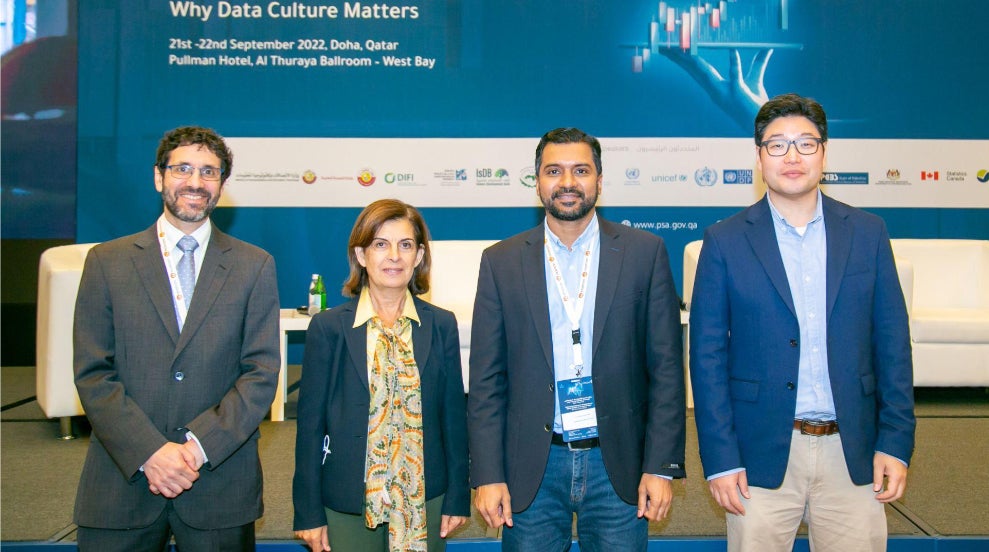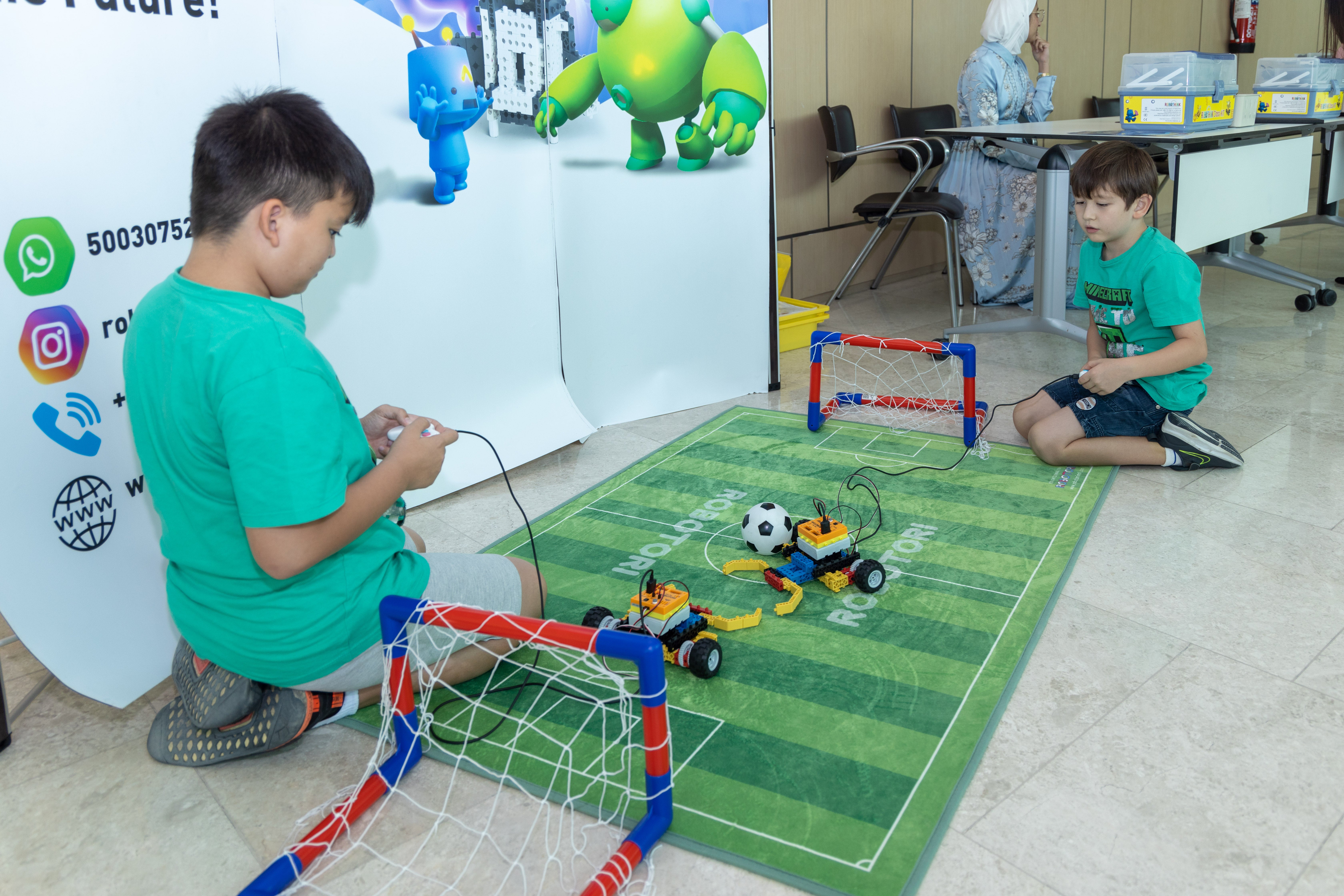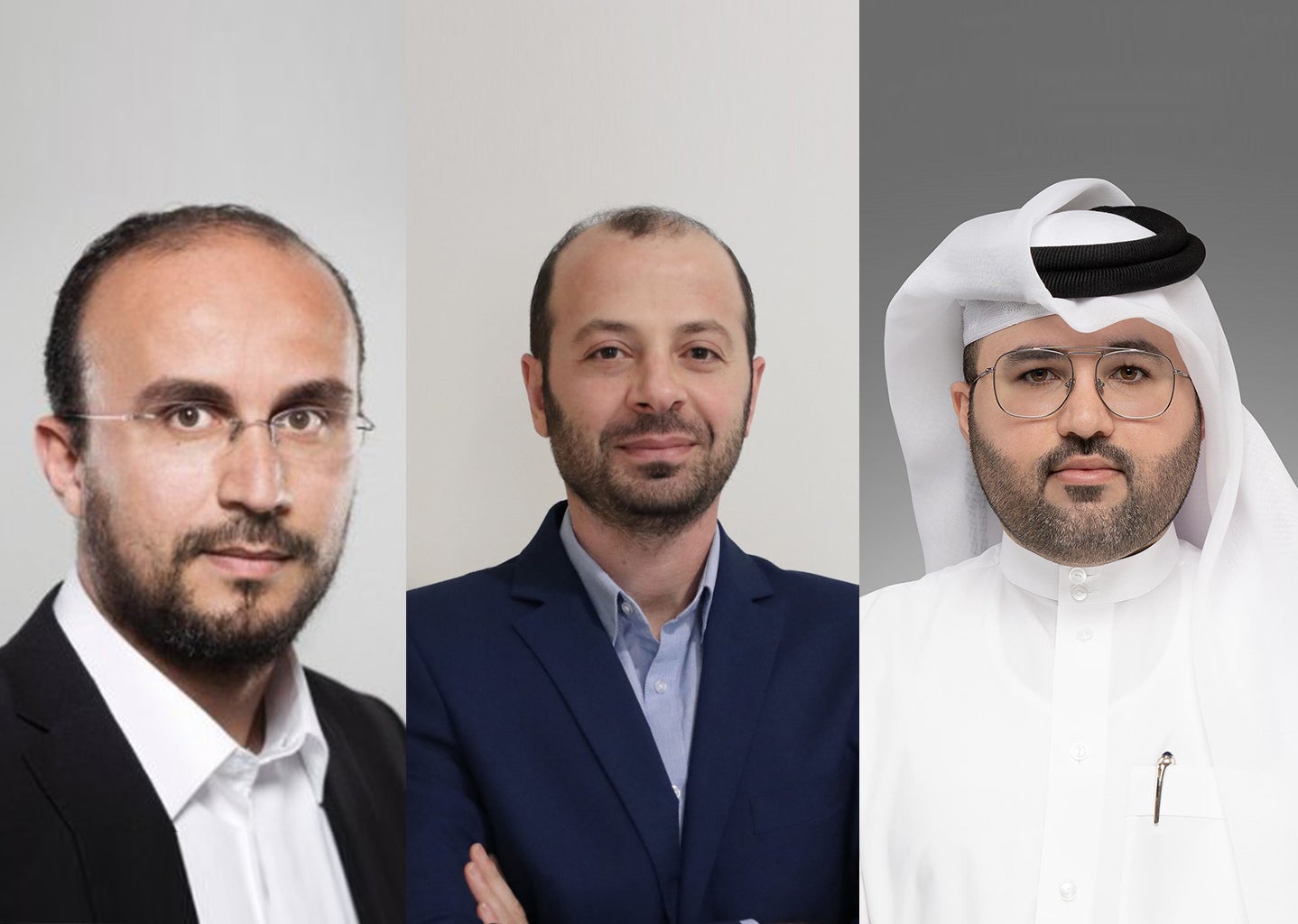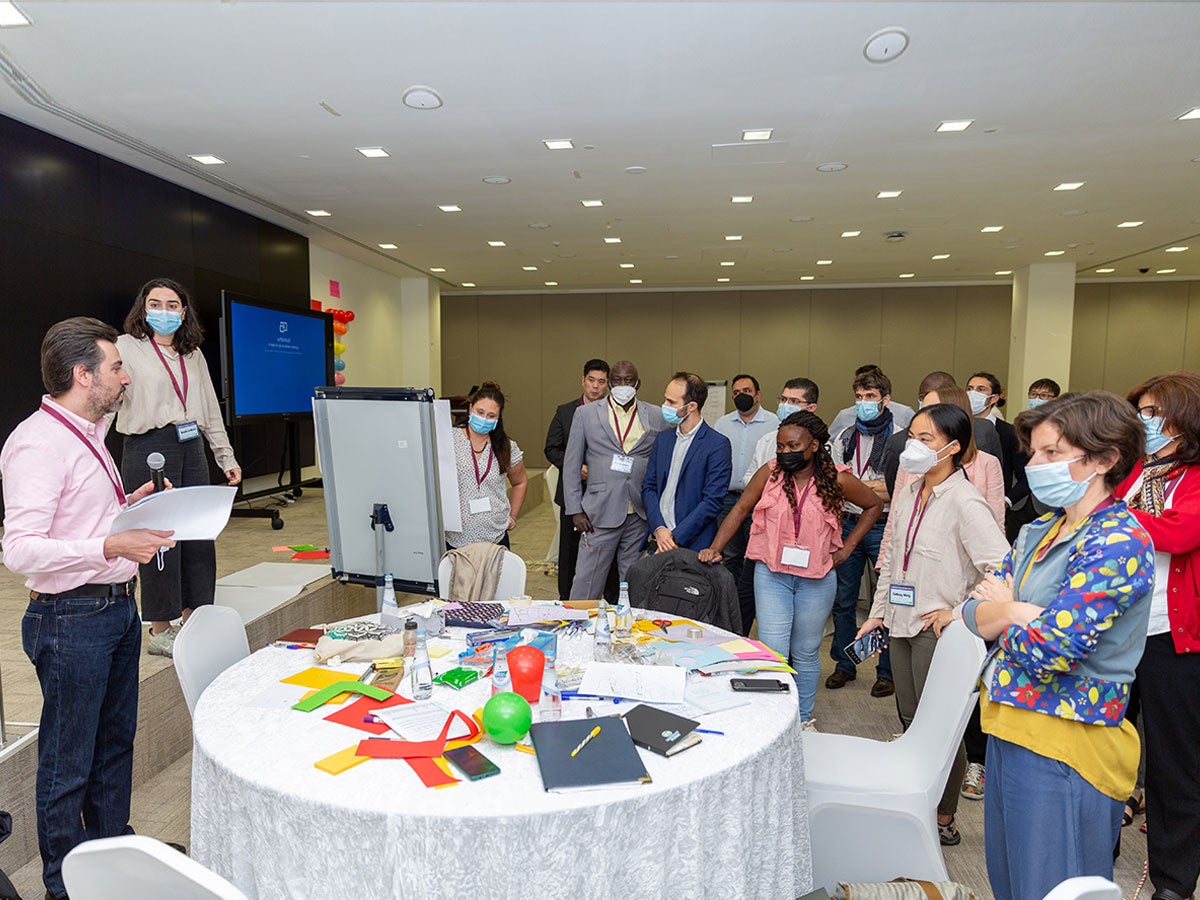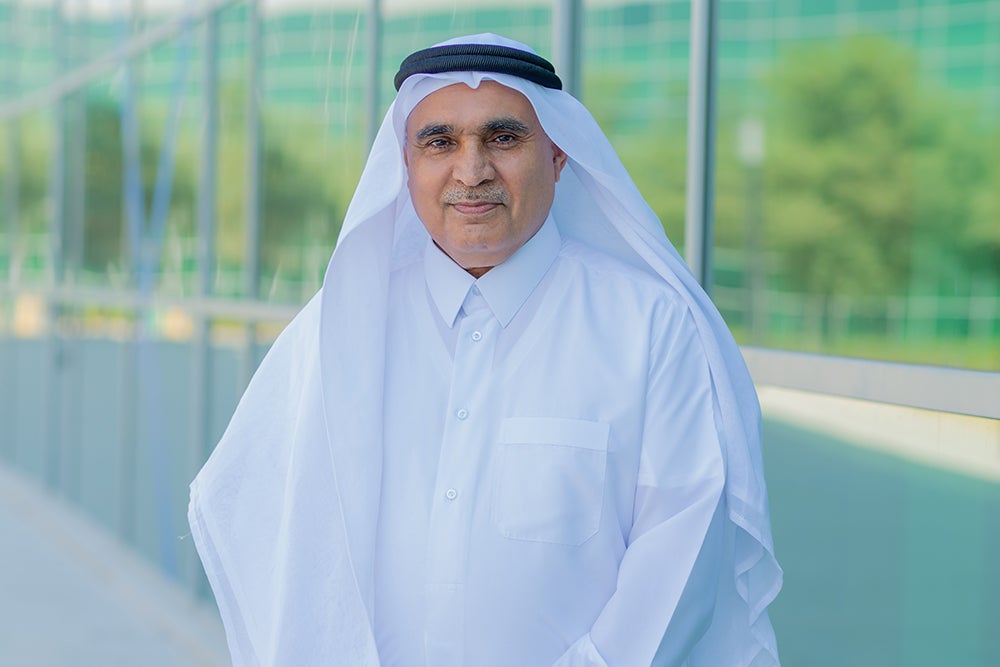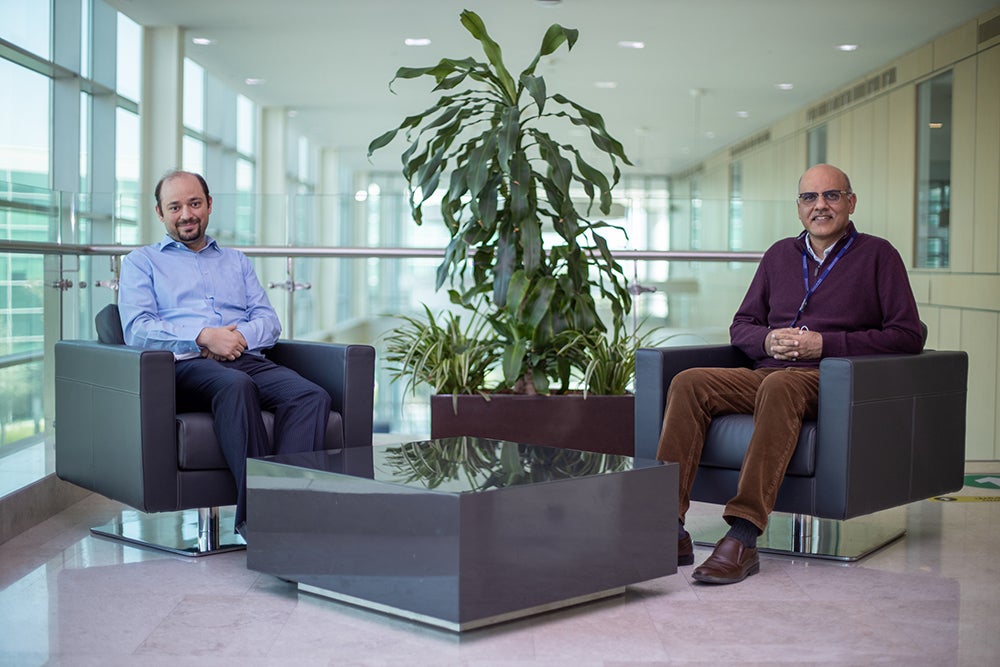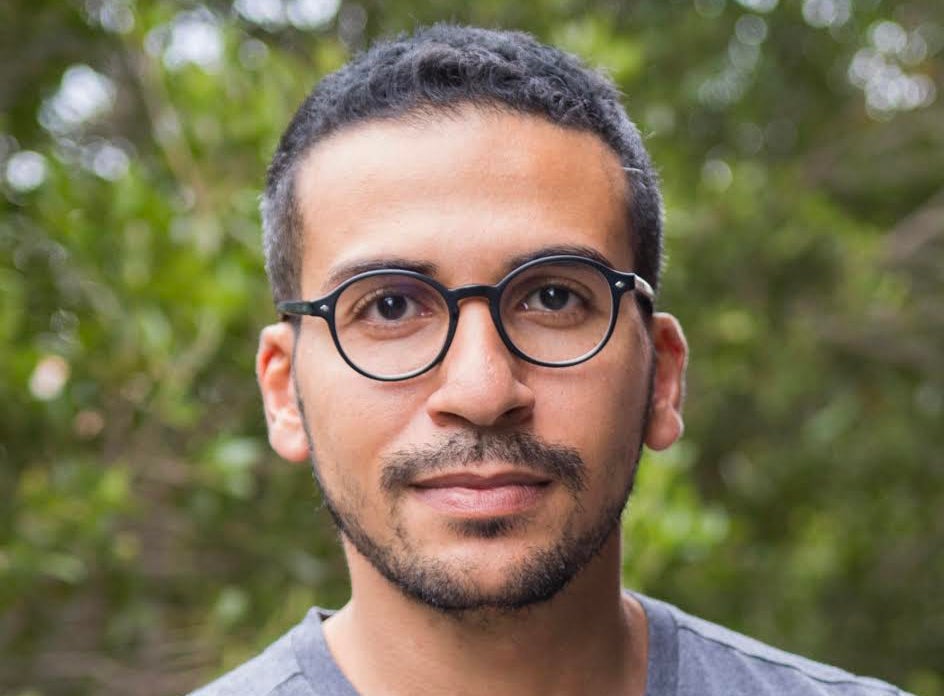
HBKU’s QCRI Hosts Princeton University Student Researchers
AI, deep learning, and traffic protocols among projects tackled by students alongside QCRI researchers

Four student researchers from Princeton University recently attended a summer internship program at Qatar Computing Research Institute (QCRI), part of Hamad Bin Khalifa University (HBKU). The students’ application was made possible as part of an ongoing collaboration with Princeton University under their International Internship Program (IIP).
The students were immersed in a hands-on multidisciplinary research experience under the mentorship of distinguished researchers and scientists at QCRI. Their projects explored areas relating to QCRI’s specializations including data analytics, social computing, and smart cities, and their applications in Qatar.
Dr. Eman Fituri, director of educational initiatives, QCRI, said: “Our participation with Princeton University’s International Internship Program signifies QCRI’s commitment to forming a strong international network and helping to prepare the global leaders of tomorrow in computer science and technology. As in past years, the students worked on several noteworthy and innovative projects to develop solutions to local and global challenges in cybersecurity and computing research. QCRI is proud to be recognized as one of the only two official hosting institutions in the Middle East, and we hope that our partnership with Princeton University will continue to strengthen in the years to come.”
Hamza Mahmoud, one of the student researchers, worked on developing an Artificial Intelligence algorithm to limit the effect of fake news, propaganda, and media bias by using fact-checking to increase the awareness levels of readers. Commenting on the experience, Mahmoud said: “Interning at QCRI gave me the opportunity to perform research in an exciting area of natural language, work with incredible scientists and interact with like-minded interns and staff. The helpful environment at QCRI and the mentorship I received played a crucial part in my learning and the project’s progress. Based on my experience, I’m really grateful that Princeton’s International Internship Program is collaborating with QCRI.”
Another of the student researchers and a sophomore at Princeton University, Benjamin Coles worked with QCRI researchers on a project that maps poverty in the Philippines and India by using a combination of satellite and social media data. The team used state-of-the-art methods in deep learning to extract features from satellite images and meta data from social media platforms to analyze the data and to evaluate their relative strengths and weaknesses for mapping poverty.
Research projects by Anuhya Vellore and Phillip Taylor formed part of a larger QCRI initiative in collaboration with various stakeholders including the Ministry of Transport and Communications to explore data-driven research to develop innovative solutions for traffic in Qatar. Phillip worked on the development of a multi-threaded solution to simulate realistic traffic loads on a city-wide scale which will be used to test the impact of the projected increase in traffic during the FIFA World Cup in 2022. Similarly, Anuhya focused on implementing and testing a variety of algorithms for traffic signal optimization to develop a signal protocol to facilitate an efficient flow of traffic on Doha’s Al Corniche Street.
Discussing his internship experience, Anuhya remarked: “My time at QCRI has been both enriching and enjoyable. As part of the Data Analytics team, I have not only been exposed to high-level topics in computer science but have also been able to see the potential real-world impact of our work. My collaboration with committed and supportive mentors has helped further my curiosity to explore how computing research intersects with global issues. Other activities outside the program, such as the opportunity to explore Qatari culture and society during my visit, has made the experience invaluable.”
The undergraduate researchers also had the opportunity to interact with students from universities across Qatar who participated in the recently concluded annual Summer Internship Program offered by QCRI. Through its internship programs, QCRI aims to develop local human capacity and train future scientists and engineers to help Qatar achieve its growing developmental goals.
QCRI’s core mandate is to work locally, regionally, and internationally to further globally applicable research agendas. For more information about QCRI, please visit qcri.hbku.edu.qa.
Related News
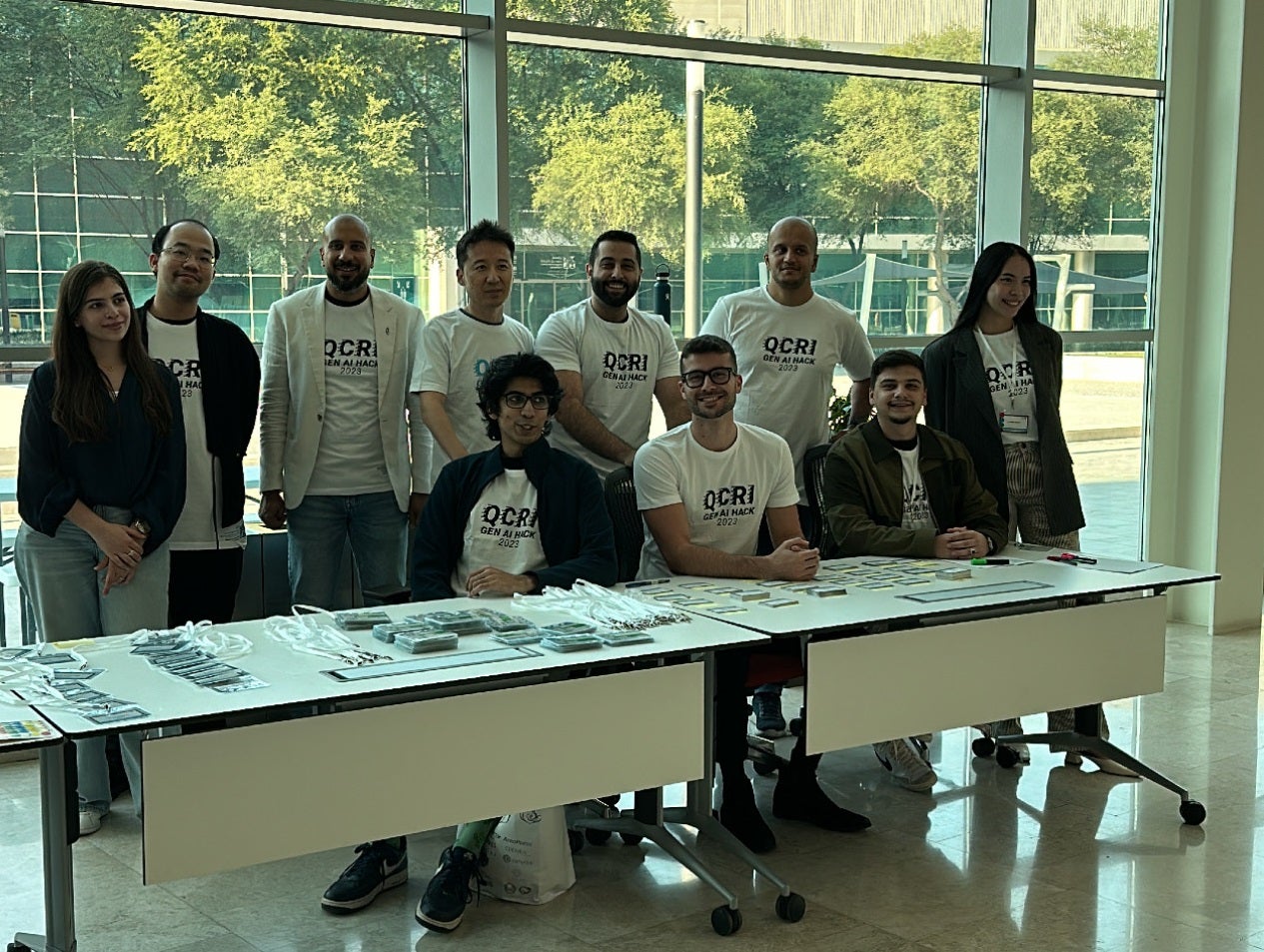
QCRI Generative AI Hackathon Delivers a Showcase of Innovation and Collaboration
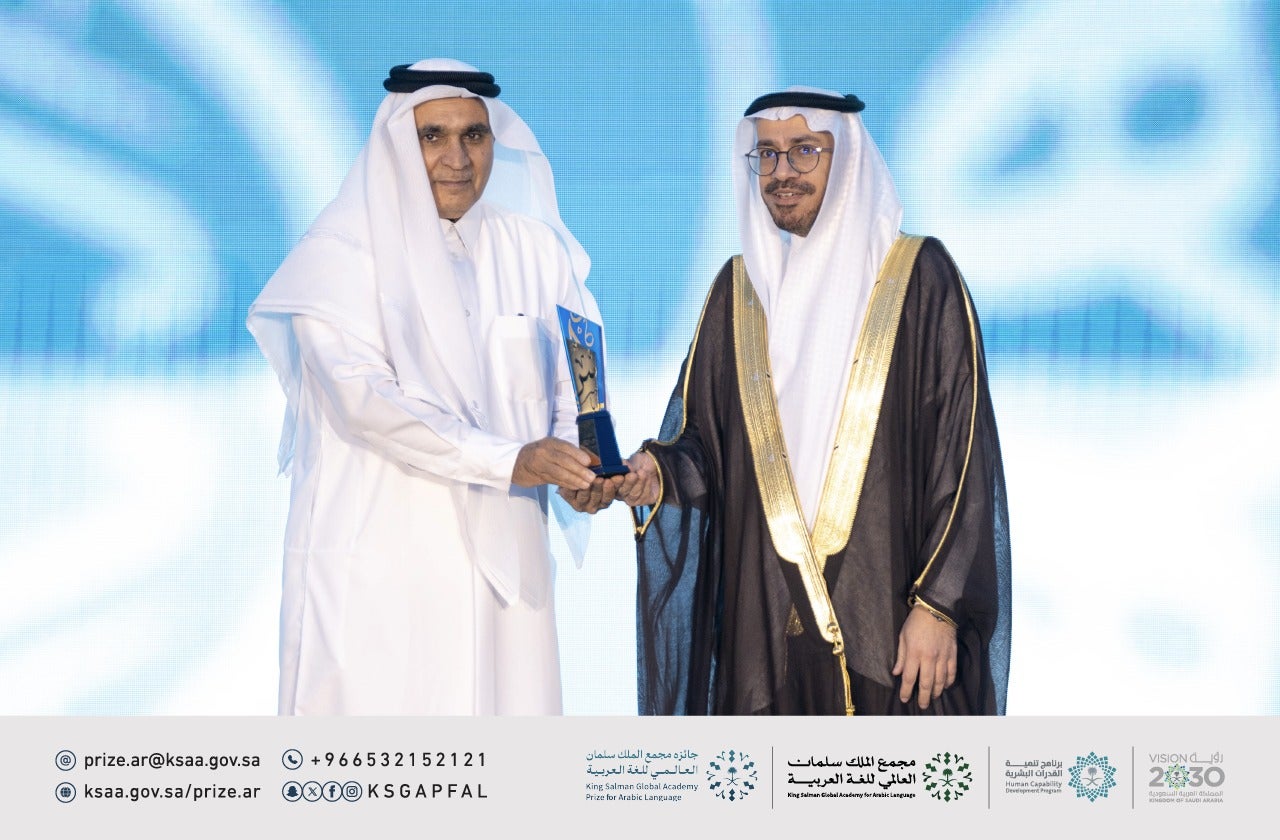
HBKU’s QCRI Receives King Salman International Academy Award for the Arabic Language 2023

QCRI, HMC and the Mayo Clinic Shed Light on Genomics of Coronary Heart Disease

HBKU’s Qatar Computing Research Institute Concludes Summer Internship Program Online

Qatar Computing Research Institute Continues Webinar Series with Focus on COVID-19 Challenges

Qatar Computing Research Institute Webinars Examine Data Exploration and Meta-Data for COVID-19

QCRI Generative AI Hackathon Delivers a Showcase of Innovation and Collaboration

HBKU’s QCRI Receives King Salman International Academy Award for the Arabic Language 2023

QCRI, HMC and the Mayo Clinic Shed Light on Genomics of Coronary Heart Disease

HBKU’s Qatar Computing Research Institute Concludes Summer Internship Program Online

Qatar Computing Research Institute Continues Webinar Series with Focus on COVID-19 Challenges

Qatar Computing Research Institute Webinars Examine Data Exploration and Meta-Data for COVID-19

QCRI Generative AI Hackathon Delivers a Showcase of Innovation and Collaboration

HBKU’s QCRI Receives King Salman International Academy Award for the Arabic Language 2023

QCRI, HMC and the Mayo Clinic Shed Light on Genomics of Coronary Heart Disease

HBKU’s Qatar Computing Research Institute Concludes Summer Internship Program Online

Qatar Computing Research Institute Continues Webinar Series with Focus on COVID-19 Challenges

Qatar Computing Research Institute Webinars Examine Data Exploration and Meta-Data for COVID-19

QCRI Generative AI Hackathon Delivers a Showcase of Innovation and Collaboration

HBKU’s QCRI Receives King Salman International Academy Award for the Arabic Language 2023

QCRI, HMC and the Mayo Clinic Shed Light on Genomics of Coronary Heart Disease

HBKU’s Qatar Computing Research Institute Concludes Summer Internship Program Online

Qatar Computing Research Institute Continues Webinar Series with Focus on COVID-19 Challenges

Qatar Computing Research Institute Webinars Examine Data Exploration and Meta-Data for COVID-19

QCRI Generative AI Hackathon Delivers a Showcase of Innovation and Collaboration

HBKU’s QCRI Receives King Salman International Academy Award for the Arabic Language 2023

QCRI, HMC and the Mayo Clinic Shed Light on Genomics of Coronary Heart Disease

HBKU’s Qatar Computing Research Institute Concludes Summer Internship Program Online

Qatar Computing Research Institute Continues Webinar Series with Focus on COVID-19 Challenges

Qatar Computing Research Institute Webinars Examine Data Exploration and Meta-Data for COVID-19

QCRI Generative AI Hackathon Delivers a Showcase of Innovation and Collaboration

HBKU’s QCRI Receives King Salman International Academy Award for the Arabic Language 2023

QCRI, HMC and the Mayo Clinic Shed Light on Genomics of Coronary Heart Disease

HBKU’s Qatar Computing Research Institute Concludes Summer Internship Program Online

Qatar Computing Research Institute Continues Webinar Series with Focus on COVID-19 Challenges

Qatar Computing Research Institute Webinars Examine Data Exploration and Meta-Data for COVID-19

QCRI Generative AI Hackathon Delivers a Showcase of Innovation and Collaboration

HBKU’s QCRI Receives King Salman International Academy Award for the Arabic Language 2023

QCRI, HMC and the Mayo Clinic Shed Light on Genomics of Coronary Heart Disease

HBKU’s Qatar Computing Research Institute Concludes Summer Internship Program Online

Qatar Computing Research Institute Continues Webinar Series with Focus on COVID-19 Challenges

Qatar Computing Research Institute Webinars Examine Data Exploration and Meta-Data for COVID-19

QCRI Generative AI Hackathon Delivers a Showcase of Innovation and Collaboration

HBKU’s QCRI Receives King Salman International Academy Award for the Arabic Language 2023

QCRI, HMC and the Mayo Clinic Shed Light on Genomics of Coronary Heart Disease

HBKU’s Qatar Computing Research Institute Concludes Summer Internship Program Online

Qatar Computing Research Institute Continues Webinar Series with Focus on COVID-19 Challenges

Qatar Computing Research Institute Webinars Examine Data Exploration and Meta-Data for COVID-19

QCRI Generative AI Hackathon Delivers a Showcase of Innovation and Collaboration

HBKU’s QCRI Receives King Salman International Academy Award for the Arabic Language 2023

QCRI, HMC and the Mayo Clinic Shed Light on Genomics of Coronary Heart Disease

HBKU’s Qatar Computing Research Institute Concludes Summer Internship Program Online

Qatar Computing Research Institute Continues Webinar Series with Focus on COVID-19 Challenges

Qatar Computing Research Institute Webinars Examine Data Exploration and Meta-Data for COVID-19

QCRI Generative AI Hackathon Delivers a Showcase of Innovation and Collaboration

HBKU’s QCRI Receives King Salman International Academy Award for the Arabic Language 2023

QCRI, HMC and the Mayo Clinic Shed Light on Genomics of Coronary Heart Disease

HBKU’s Qatar Computing Research Institute Concludes Summer Internship Program Online

Qatar Computing Research Institute Continues Webinar Series with Focus on COVID-19 Challenges

Qatar Computing Research Institute Webinars Examine Data Exploration and Meta-Data for COVID-19

QCRI Generative AI Hackathon Delivers a Showcase of Innovation and Collaboration

HBKU’s QCRI Receives King Salman International Academy Award for the Arabic Language 2023

QCRI, HMC and the Mayo Clinic Shed Light on Genomics of Coronary Heart Disease

HBKU’s Qatar Computing Research Institute Concludes Summer Internship Program Online

Qatar Computing Research Institute Continues Webinar Series with Focus on COVID-19 Challenges

Qatar Computing Research Institute Webinars Examine Data Exploration and Meta-Data for COVID-19

QCRI Generative AI Hackathon Delivers a Showcase of Innovation and Collaboration

HBKU’s QCRI Receives King Salman International Academy Award for the Arabic Language 2023

QCRI, HMC and the Mayo Clinic Shed Light on Genomics of Coronary Heart Disease

HBKU’s Qatar Computing Research Institute Concludes Summer Internship Program Online

Qatar Computing Research Institute Continues Webinar Series with Focus on COVID-19 Challenges

Qatar Computing Research Institute Webinars Examine Data Exploration and Meta-Data for COVID-19

QCRI Generative AI Hackathon Delivers a Showcase of Innovation and Collaboration

HBKU’s QCRI Receives King Salman International Academy Award for the Arabic Language 2023

QCRI, HMC and the Mayo Clinic Shed Light on Genomics of Coronary Heart Disease

HBKU’s Qatar Computing Research Institute Concludes Summer Internship Program Online

Qatar Computing Research Institute Continues Webinar Series with Focus on COVID-19 Challenges

Qatar Computing Research Institute Webinars Examine Data Exploration and Meta-Data for COVID-19

QCRI Generative AI Hackathon Delivers a Showcase of Innovation and Collaboration

HBKU’s QCRI Receives King Salman International Academy Award for the Arabic Language 2023

QCRI, HMC and the Mayo Clinic Shed Light on Genomics of Coronary Heart Disease

HBKU’s Qatar Computing Research Institute Concludes Summer Internship Program Online

Qatar Computing Research Institute Continues Webinar Series with Focus on COVID-19 Challenges

Qatar Computing Research Institute Webinars Examine Data Exploration and Meta-Data for COVID-19

QCRI Generative AI Hackathon Delivers a Showcase of Innovation and Collaboration

HBKU’s QCRI Receives King Salman International Academy Award for the Arabic Language 2023

QCRI, HMC and the Mayo Clinic Shed Light on Genomics of Coronary Heart Disease

HBKU’s Qatar Computing Research Institute Concludes Summer Internship Program Online

Qatar Computing Research Institute Continues Webinar Series with Focus on COVID-19 Challenges

Qatar Computing Research Institute Webinars Examine Data Exploration and Meta-Data for COVID-19

QCRI Generative AI Hackathon Delivers a Showcase of Innovation and Collaboration

HBKU’s QCRI Receives King Salman International Academy Award for the Arabic Language 2023

QCRI, HMC and the Mayo Clinic Shed Light on Genomics of Coronary Heart Disease

HBKU’s Qatar Computing Research Institute Concludes Summer Internship Program Online

Qatar Computing Research Institute Continues Webinar Series with Focus on COVID-19 Challenges

Qatar Computing Research Institute Webinars Examine Data Exploration and Meta-Data for COVID-19

QCRI Generative AI Hackathon Delivers a Showcase of Innovation and Collaboration

HBKU’s QCRI Receives King Salman International Academy Award for the Arabic Language 2023

QCRI, HMC and the Mayo Clinic Shed Light on Genomics of Coronary Heart Disease

HBKU’s Qatar Computing Research Institute Concludes Summer Internship Program Online

Qatar Computing Research Institute Continues Webinar Series with Focus on COVID-19 Challenges

Qatar Computing Research Institute Webinars Examine Data Exploration and Meta-Data for COVID-19

QCRI Generative AI Hackathon Delivers a Showcase of Innovation and Collaboration

HBKU’s QCRI Receives King Salman International Academy Award for the Arabic Language 2023

QCRI, HMC and the Mayo Clinic Shed Light on Genomics of Coronary Heart Disease

HBKU’s Qatar Computing Research Institute Concludes Summer Internship Program Online

Qatar Computing Research Institute Continues Webinar Series with Focus on COVID-19 Challenges

Qatar Computing Research Institute Webinars Examine Data Exploration and Meta-Data for COVID-19

QCRI Generative AI Hackathon Delivers a Showcase of Innovation and Collaboration

HBKU’s QCRI Receives King Salman International Academy Award for the Arabic Language 2023

QCRI, HMC and the Mayo Clinic Shed Light on Genomics of Coronary Heart Disease

HBKU’s Qatar Computing Research Institute Concludes Summer Internship Program Online

Qatar Computing Research Institute Continues Webinar Series with Focus on COVID-19 Challenges

Qatar Computing Research Institute Webinars Examine Data Exploration and Meta-Data for COVID-19

QCRI Generative AI Hackathon Delivers a Showcase of Innovation and Collaboration

HBKU’s QCRI Receives King Salman International Academy Award for the Arabic Language 2023

QCRI, HMC and the Mayo Clinic Shed Light on Genomics of Coronary Heart Disease

HBKU’s Qatar Computing Research Institute Concludes Summer Internship Program Online

Qatar Computing Research Institute Continues Webinar Series with Focus on COVID-19 Challenges






